Heritage sites: What's been saved, what's at risk?
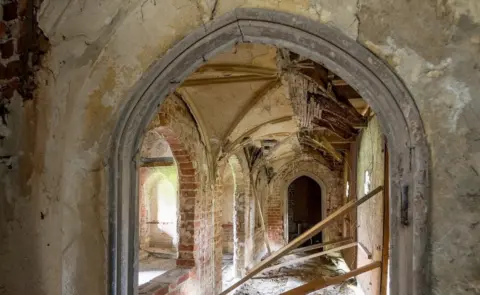 John Miller
John MillerA graveyard inside a quarry, a windmill and a centuries-old library are among the places added to the latest register of at-risk heritage sites.
The list, compiled by Historic England, includes 216 new entrants deemed to be in danger of "neglect, decay or inappropriate change".
However, following investment and conservation work, 181 sites have been saved and removed from the register.
Here are some of the places to have moved off or on to the list.
Saved: Lewis Carroll's preaching place
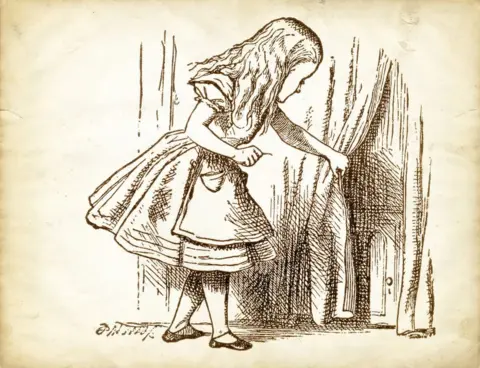 THEPALMER/Getty Images
THEPALMER/Getty ImagesThe Rev Charles Lutwidge Dodgson, the author of Alice's Adventures in Wonderland and Alice Through the Looking Glass, was staying with nearby family when he conducted a sermon at St Mary's Church in Guildford, Surrey.
Better known now as Lewis Carroll, the writer's funeral was also held at the church in 1898.
Stonework at the Grade I building was decaying but after extensive repairs, the Saxon tower is no longer considered in danger.
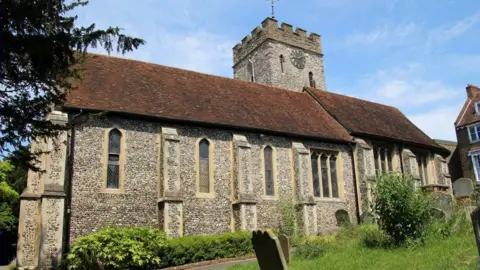 Historic England
Historic EnglandAt risk: St James's garden cemetery
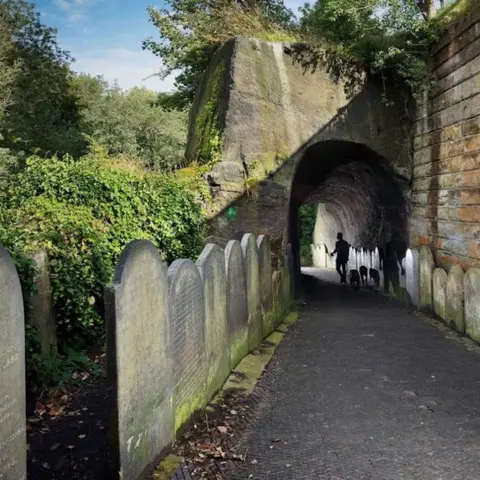 Alun Bull
Alun BullAn early example of a public cemetery, St James's Garden was a stone quarry until it was bought by the Anglican community of Liverpool.
It was then laid out as a graveyard, with massive carriage ramps above catacombs.
Neglect, poor repairs and invasive vegetation have taken their toll on the site, leading to its inclusion on the register.
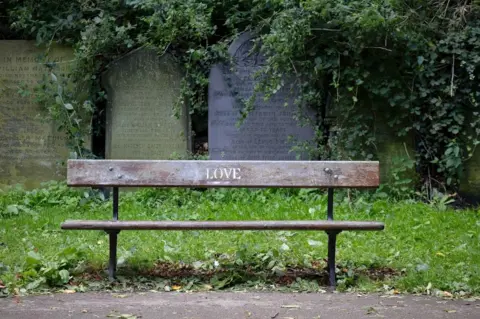 Alun Bull
Alun BullSaved: A fairy discotheque
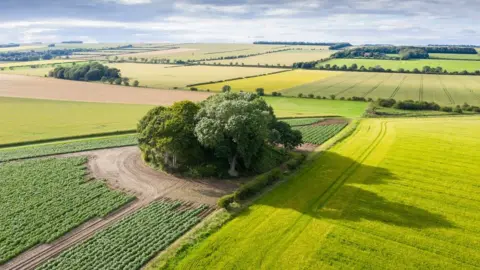 Alun Bull
Alun BullWillie Howe in Driffield, East Yorkshire, is a prehistoric funerary monument mound called a barrow. Legend has it a drunk man discovered a bunch of fairies having a party there and they offered the man a drink. Wise to cunning ways of fairies, he did not imbibe the liquid but poured it away and stole the cup.
Over the years, Willie Howe became overgrown but grants from Natural England enabled the landowner (human not fae) to tidy it up a bit.
Human remains are often to be found in this sort of barrow - but Willie Howe was empty. Maybe the fairies took them.

What is on the list?
The latest register has 5,097 entries, including:
- 932 places of worship
- 103 parks and gardens
- 3 battlefields
- 3 protected wreck sites
- 491 conservation areas.

At risk: An elaborate windmill
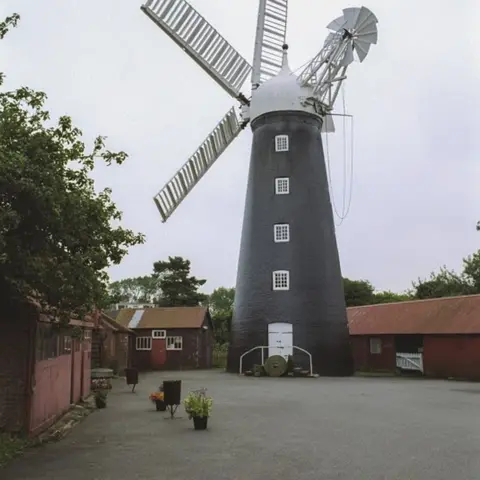 Historic England
Historic EnglandDobson's Windmill in Burgh Le Marsh, Lincolnshire, was built in 1813 and was going strong until a storm earlier this year damaged its sails, cap and fantail.
The cap is an unusual shape and ornately decorated and the sails are special ones that can be adjusted without stopping the mill.
Repairs are needed, so the mill is on the register.
Saved: Mannerly milk-making
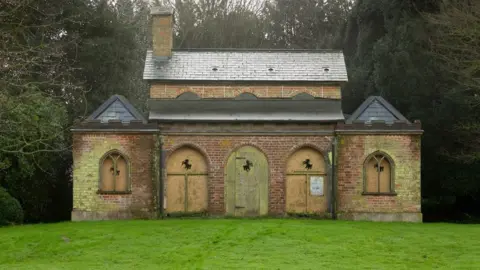 John Miller
John MillerThe Dairy at Cobham Hall in Kent was designed in the late 18th Century, when ornamental estate buildings were the height of fashion.
Supervising the making of cream, butter and cheese was a recognised and decorous country pursuit for elegant Georgian women.
This dairy was conceived to resemble a tiny chapel topped with a bell tower.
It had been empty for decades but has now been fully repaired.
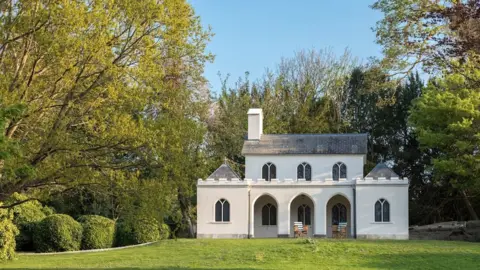 JOHN MILLER
JOHN MILLERAt risk: Royal roadhouse
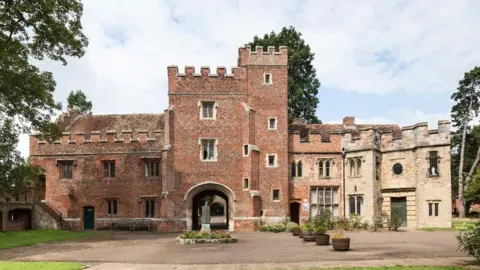 Patricia Payne
Patricia PayneThe 15th Century Buckden Towers are the remains of the Palace of the Bishop of Lincoln. Royals such as Henrys III and VIII, Edward I and Richard III all visited the towers.
It was during a tour that included a stay at Buckden Towers, just off the A1 in Cambridgeshire, that Catherine Howard was accused of committing adultery. It was an allegation that led to her beheading.
Of the structures still standing (parts were demolished in 1632 on the orders of the Ecclesiastical Commissioners) the brick gatehouse needs urgent repairs as the roof is leaking. This could cause the roof structure and ceiling to collapse.
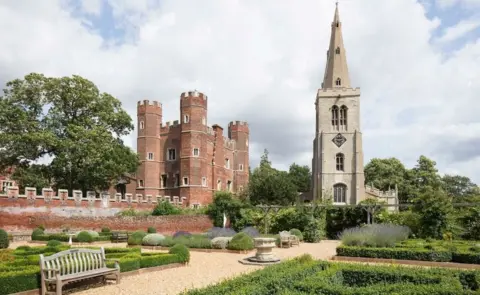 Patricia Payne
Patricia Payne